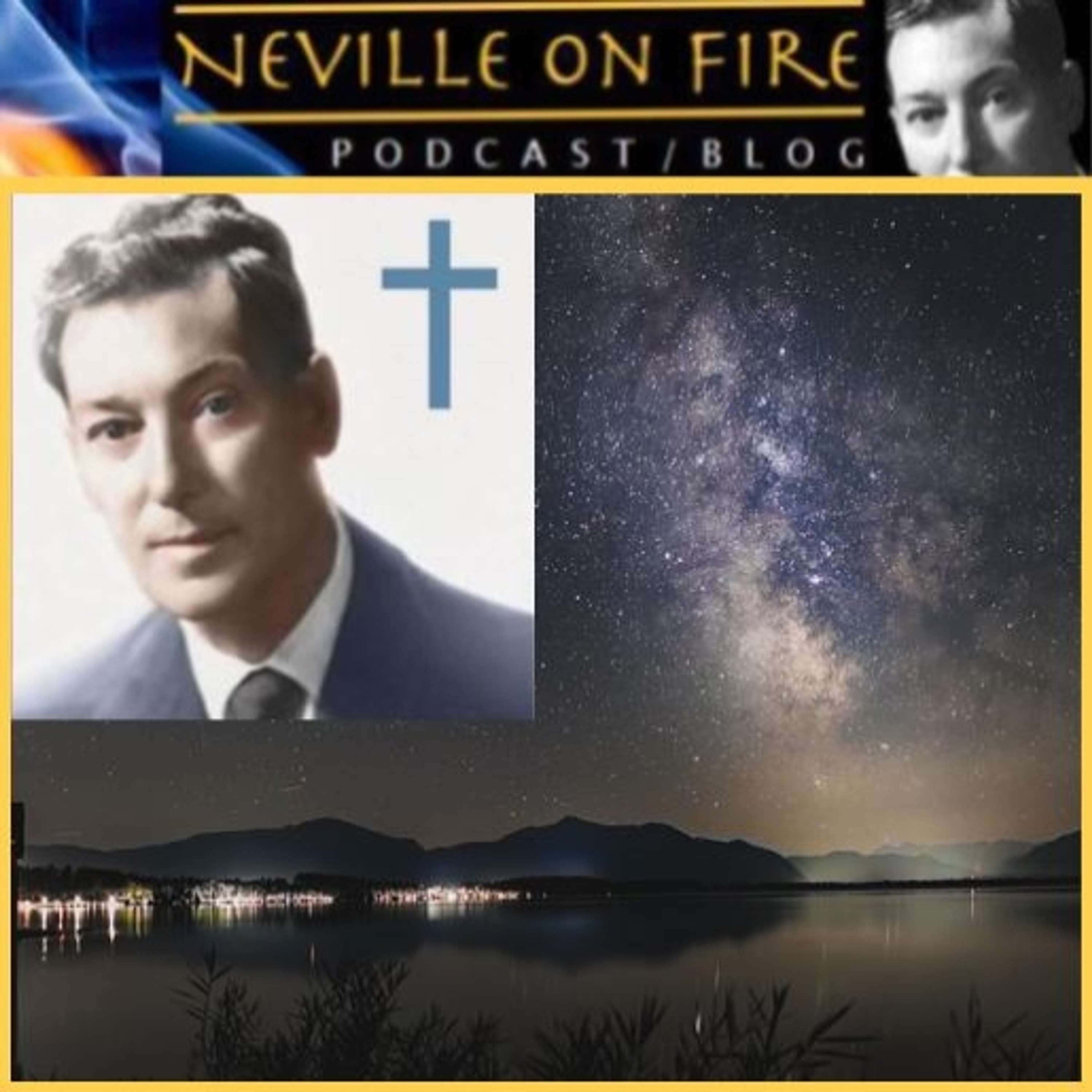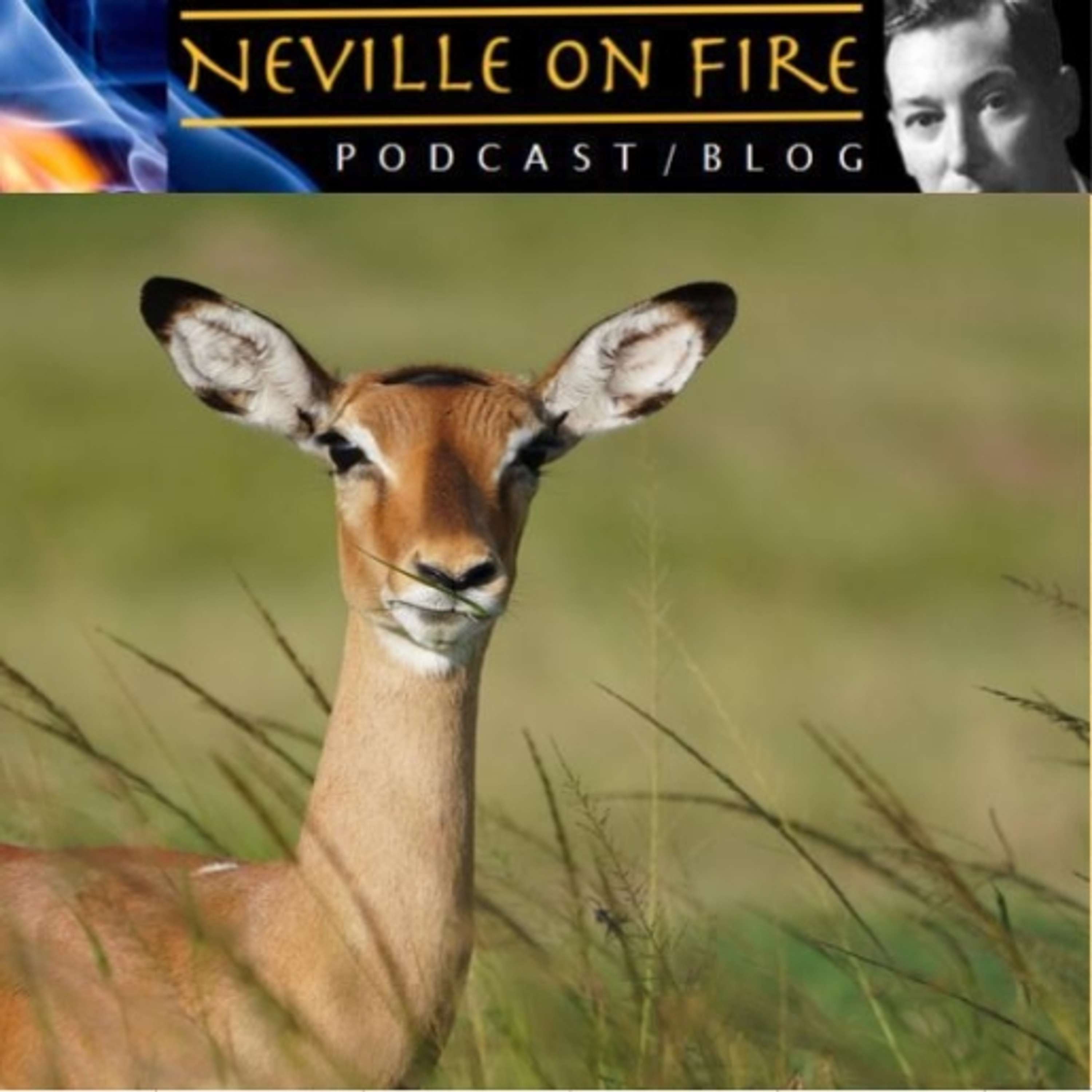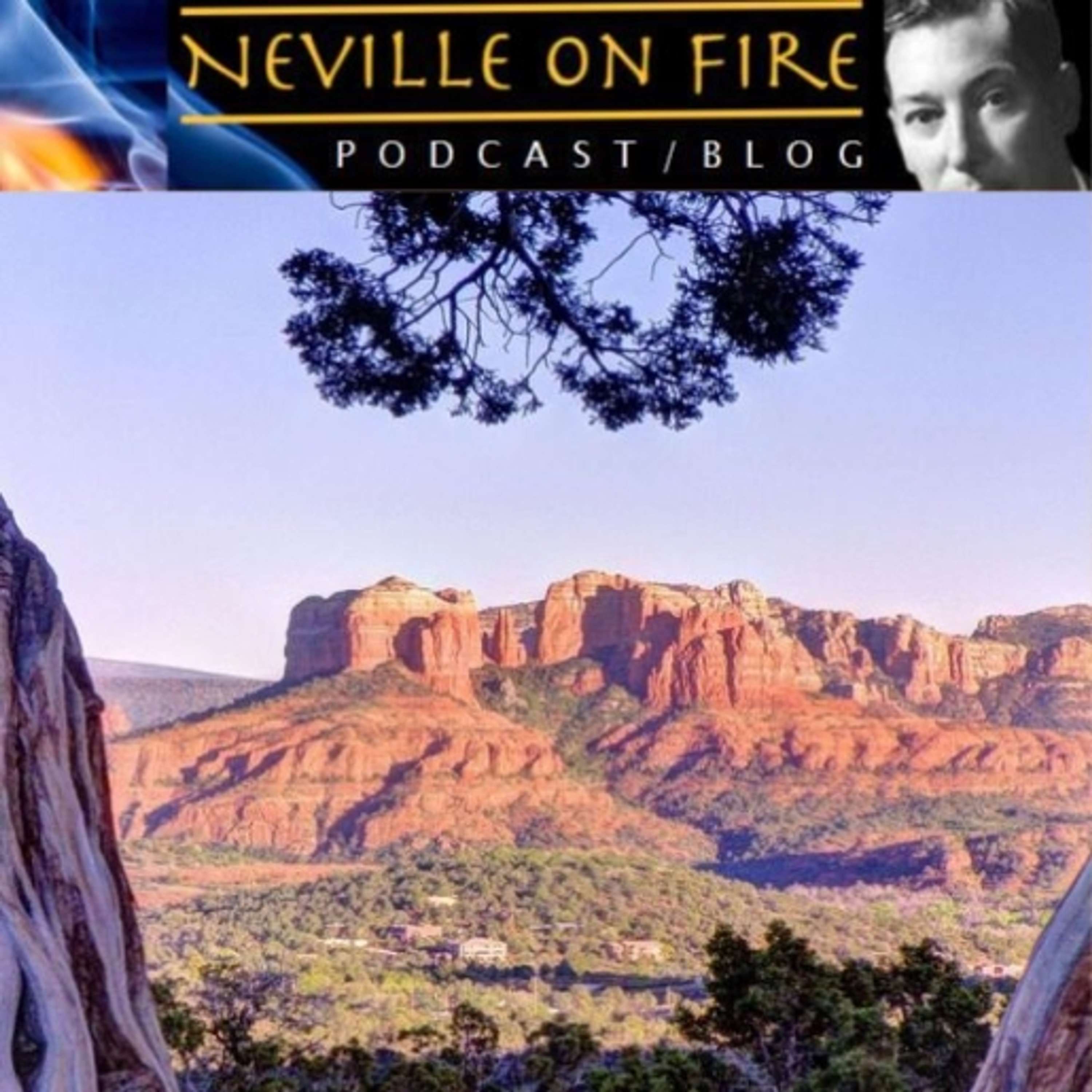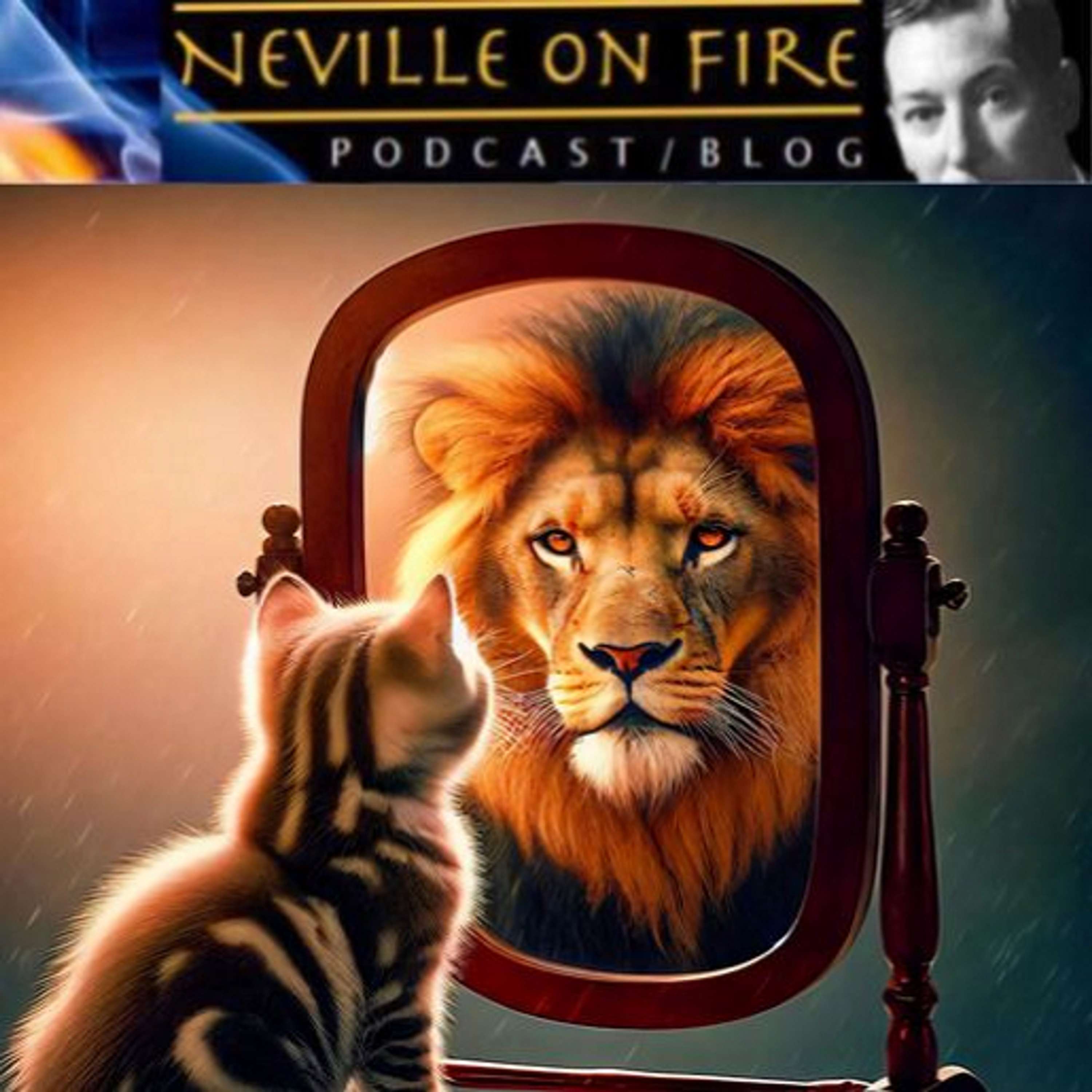Show Notes
Introduction
Part I I feel compelled to reiterate the purpose of this podcast series. The listener should know exactly what my intention is.
Part II Encountering the archetype: a further exploration of the world without as the world within.
Part I
1. Recapitulation: pupose, rationale, limitations.
2. An exploration; series of ideas as ordered as possible; listener’s responsibility.
3. Four main influences (see list of resources).
4. They are a preparation or foundation for considering Neville’s more radical views.
Part II
5. The world is you pushed out.
6. Experience of encountering the archetype.
7. One inspiring example: the John Searl story; parallels with Neville’s experience.
8. Man can create an intelligible life for himself.
SUMMARY
RESOURCES
PD Ouspensky
(1949) In Search of the Miraculous
Maurice Nicoll
(1952) Psychological Commentaries on the Teaching of Gurdjieff and Ouspensky, Vol I-V
(1952) Living Time and the Integration of the Life
CG Jung
(1964) Man and His Symbols
Dr. Rolf Alexander
(1954, Pageant Press) Creative Realism (reprint by Literary Licensing is a facsimile of the original)
(1960, Dutton, NY, ) The Mind In Healing (not the so-called "The Healing Power of the Mind")
(1943, Overton Press, Lake Tahoe) The Doctor Alone Can’t Cure You
Documentary: The John Searl Story, wriiten and directed by Bradley Lockerman
Show Transcript
[edited for clarity]
This is episode 19 Are You With Me?
In this episode I'll do two things: first is a recap of the rationale for this podcast series and the explanation of purpose, and what you're getting involved in. The reason I'm doing this: I feel compelled to because my listenership is increasing, and I feel it's only fair, it's ethical, to set out exactly what I'm trying to do, and what you can expect. That's in exchange for you giving the time to listen to my material.
(By the time this episode is posted there should be a new website with both the contact form and a space for your reviews, so that anyone who wants to respond with comments, suggestions, or constructive criticism… that would be great, because it's very difficult for me to track down any comments that might be left on various podcast listening platforms. )
The second thing I want to do in today's episode is to pursue the idea of the world being your own self, your psyche “pushed out”; as Neville would say – this time explored from the point of view of archetype.
Well I made the purpose of this podcast series clear in the first episode, and I haven't really changed my mind too drastically on anything. It just seems very strange to use this medium, this technology, to communicate with people. Obviously I'm standing in front of a microphone and I don't know who I'm talking to. I'm unknown to you with respect to everything except the sound of my voice, and of course I don't know who you (are except of course a few people that I know personally). But the reason I bring that up is because the difficulty is that each person is going to have a different starting point, a different background and approach to the material, which concerns our sense of identity, consciousness, purpose and so on.
It requires your engagement. I have to ask you to see past all the personal limitations or obstacles that I bring, by virtue of the fact that my voice might be tired, or my approach might not suit your personal temperament. I'm quite sure you can see past all the technical and personal limitations. The way I compensate for that is to try to edit things down to a concentrated message or 15 to 20 minutes, respecting your time.
Now let's go over my approach one more time, so you know where you stand, where I stand.
This is an exploration of Neville's ideas. That's how I characterize it. I'm not professing. Now I might sound like I'm professing and giving very definite opinions – and I'll do that – but in that case I'm professing to myself.
This is an ordered series of ideas, as opposed to a chaotic and vague outpouring of random thoughts. I do that because the experience resulting from considering all these ideas can go so far into the irrational, into things that are inexplicable and cannot be ordered logically. The further along we go, the more I realize that a so-called “ordered series of ideas” is really an impossibility! But at least I will try to make discrete topics, and build a foundation.
And finally it's just as well to reiterate the warning that I gave in episode 1: it is necessary for each listener to take responsibility for maintaining mental stability. I'm not trying to be over- dramatic, but I think it's the right thing to say.
With regard to my influences… Of course this is all about Neville Goddard and his ideas, and yet I keep drawing on other sources. I'm going to explain these.
The first one is the Fourth Way, a system brought by Gurdjieff, a Greek Armenian, from the East to the West, back in the early part of the twentieth century. The main exponent there is Ouspensky, a Russian journalist who recorded, in an extraordinary way, of teaching in the early years and published it in a book called In Search of the Miraculous.
CG Jung is another source that we drawn quite frequently. Now Maurice Nicoll, whom I’ve quoted quite a lot – he's interesting because he first started to study with Jung, and in fact was meant to be CG Jung’s representative for analytical psychology in London. But he gave up what undoubtedly would have been a very successful career path once he met with Ouspensky, and heard him speak about the Fourth Way. He almost immediately dropped his connection with Jung, and went and studied with Gurdjieff, and then later on with Ouspensky.
If you look at his output, he's got a 5-volume series: Commentaries on the Teaching of Gurdjieff and Ouspensky, as well as commentary and interpretation of scripture (which I think attracted Neville’s attention), as well as a remarkable book called Living Time.
The other major influence that I've been quoting since E1 is Dr. Rolf Alexander. He's pretty much unknown. The jacket cover on one of his books indicates that he met and studied with Gurdjieff.
So I would say those four: Gurdjieff, CG Jung, Nicoll and Rolf Alexander – all discrete and separate careers, and yet all of them connected.
Now I can try to summarize the message from each of those. The book In Search of the Miraculous: I don't think you'll find a more cutting, incisive critique of man's condition; speaking both of society in general, and an individual's personal psychology. Gurdjieff himself remarked: we remove all masks.
With regard to CG Jung: for me he was significant for dream analysis (I did record and analyze my own dreams). Neville himself followed the biblical instruction that God speaks to man through dreams and visions. Interestingly, though, when you compare that approach to that of Gurdjieff. He says: “do not dream”;. I don't think he approved of Western psychology in any form whatsoever.
Back to CG Jung. What I also found valuable was, of course being the pioneer that he was, his extraordinary map of the human psyche, with all of its different components and the aspects that are universal. Probably the best introduction is his own Man and His Symbols.
I've already mentioned that Nicoll was the bridge between Jung and the Fourth Way. Where Nicoll is exceptional, probably for many readers, is the way that he takes you by the hand and explains complex things in an intimate way – you almost have the impression that you're sitting in the room with him.
Dr. Rolf Alexander was extraordinary is his creation of exercises to help us take so much theory and bring it home into personal experience. His major work that we keep pointing back to is Creative Realism. Apart from that, you could look at The Doctor Alone Can’t Cure You, and The Mind in Healing.
Now the common thread that runs through the teaching of Gurdjieff, Jung, Nicoll and Rolf Alexander is objective consciousness – self-awareness. That's what they're all about.
So then of course we come to Neville. Why don't we focus more on Neville's ideas? I guess we should! But I gave a YouTube channel called 100 KW where you can hear Neville's lectures in the original, a lot of them remastered, so the quality is good. I also gave you the website for a lot of his written works recorded in audio book format – free access.
To answer the question: I believe Neville's position, his message, is fundamental. It goes to the heart of answering the existential questions, so even someone like Jung – for all his extraordinary profundity, pioneering activity and output – he shies away from the possibility of calling an identity between God, the Creative Source, and man himself. Nor do the other ones do it – Nicoll, Gurdjieff, Alexander – they all seem to have almost a conventional, historical view of Jesus Christ.
Neville was the only one to take the idea of a psychological interpretation, and take it to its logical conclusion. He had the courage of his convictions to say our psyche, the mind of man, and the Creative Source are identical.
Now, of course, that's not megalomania. He explained, using support from scripture how the Creative Source decided – took a decision – to lay himself down and die within the form of the human being. This explains the origin of the eternal task of man, to somehow access the Divine and allow it to awaken within him.
I found it remarkable recently listening to videos on the Academy for Ideas channel about the ideas of, let's say, Jung, Nietchze, and other philosophers. They summarize the person's central position, and then eventually arrive at some sort of an impasse, where Jung, for example, says, well we can't go there because it's transcendental and therefore it's unanswerable. The nihilists, the existentialists, are particularly hopeless when it comes to ultimate questions. They didn't have Neville's insight. Again we find that it's someone who's a relative unknown, someone who is uneducated, unqualified, but had persistence and intuitive capacity. That's the person who arrived at this extraordinary conclusion that is so worthy of our consideration!
Now Neville does talk about various topics including, let's say, the subconscious. But there's a lot that he doesn't cover as foundational work, and that's why I go back to Gurdjieff, Jung, Alexander and Nicoll. Neville starts at the top, as it were – he starts with the supreme idea and he keeps reiterating this idea, and approaching it from different angles.
I think it's helpful to draw on these other authors, who set the stage and prepare us in different ways to be able to even consider, and to try to entertain and internalize, Neville's ideas.
That’s the end of the first part of this broadcast. I feel better having set out again the assumptions, rationale and expectations, so that you understand clearly what you’re getting into if you continue to listen to this podcast. As I say, give me some feedback, and in your remarks you can include suggestions for topics that I should cover.
So now let's turn our attention to this idea that the world is you “pushed out”; – the seeming external world is actually a reflection of your own psyche.
The last time I considered this to any great extent I guess was back in episode 2. We talked about how parallel ideas are found in Eastern scripture; the idea is in the Hermetica, as well as the quote from Blake: “Although it appears without, all that you behold is within, in the human imagination.”
So I'm coming back around to this idea because I'm trying to encourage you to approach it again. It's a difficult idea. It’s not a natural idea. It's something that takes effort to try to understand and experience, even by experiment. But here's one way to look at it…
You know we're familiar with synchronicities – things that are seeming coincidences — that come up and we say, oh how could that have happened? That was statistically impossible! It was an extraordinary reflection of what was going on in my mind, and so we call that a synchronicity.
But to get a glimpse of Neville's idea is to experience synchronicity, to experience the encounter of something in the seeming external world that you had been contemplating mentally… and all of a sudden to perceive that this thing is actually mind itself. I think when you reach that point, then you cross a certain barrier, you cross a certain boundary, you start to do this reversal.
I said in the introduction, we're going to look at this from the point of view of archetypes. Well that's what I'm talking about: the encounter with the archetype.
Now they take care to explain in Jungian psychology that the archetype is not just a symbol or an image, it is some sort of an organizing principle and it can express in different ways.
I was going over that and thinking about my recent experiences. I can clearly identify three examples, and two were very startling. It was just like Neville says: it scares man to discover the power within him. And then the third example was not scary – but it was very inspiring. In fact that one was connected with John Searl, whom I mentioned in the last episode. So if you go and check the documentary on John Searl, you'll see what I'm talking about. There's something not only in the character of the man, and his thought process, but in what he created that goes right to the heart of our project here of conscious realization.
The parallels of John Searl's experience with that of Neville are very interesting. There was an inability to realize his project, not just for a lack of money, but lack of sincere intent on the part of the people he was dealing with. There was vulgarization or incapacity to understand. People, as Searl said, would rather believe in lies than believe in the truth – that's how absurd things become.
He also said that we are up against a barrier which is called “scientific expertise”. If they don't understand it, if they can't replicate it, then they don't want to know. I think that's exactly what Neville was up against.
One thing is for certain. If you have a desire to look into this and you ask yourself the question; you pray or meditate on the topic and ask your subconscious for help, it's going to respond. That's one of the laws that we learned from Jung. Of course, it has to be a sincere question.
The Deeper Self is going to respond; it's a guarantee. But beware, because you don't know how it's going to respond, and it might startle you, depending on the nature of the image that is presented to you in 3D physical reality.
If you want to explore what Neville is offering and actually become a master at manifestation – if that's what you really want – then it's worth your while to try to explore this explanation of what reality is all about. Now it might be very disconcerting. But at the same time it might give you an a feeling of extraordinary confidence to realize, as I pointed out in episode 2, that the seeming external world is not this independently existing malevolent force. It is simply a reflection of your own psyche. And therefore it's amenable to some kind of control. As Neville says: man can create an intelligible life for himself, but you’ve got to have the courage to step up and claim it, with the active mind.
Well, in summary then, this podcast episode was divided into two parts; the first one to review the purpose and rationale for the whole podcast series; the second half to review the idea of the world being “pushed out”, from the point of view of experiencing the archetype. It is a reflection of your own mental activity. I'm going to put citations in the show notes for all the books that we referenced, and a final reminder to send in feedback.
Listen On
Also Listen
-

Who is Man? Neville’s Radical Answer
Book draft chapter 1. S1E01 revised, inviting your comments.https://nevilleonfir -

The Power of Noticing: How to Interrupt Mechanical Life
Conscious intervention is required for psychological growth. -

Let Go to Move Ahead: Neville and Sedona
First, review of first 15 episodes Season 2. Then explore incremental psychologi -

Conscious Self Persuasion
Science tries to define consciousness where it does not exist, and hypnosis whil


Comments & Upvotes